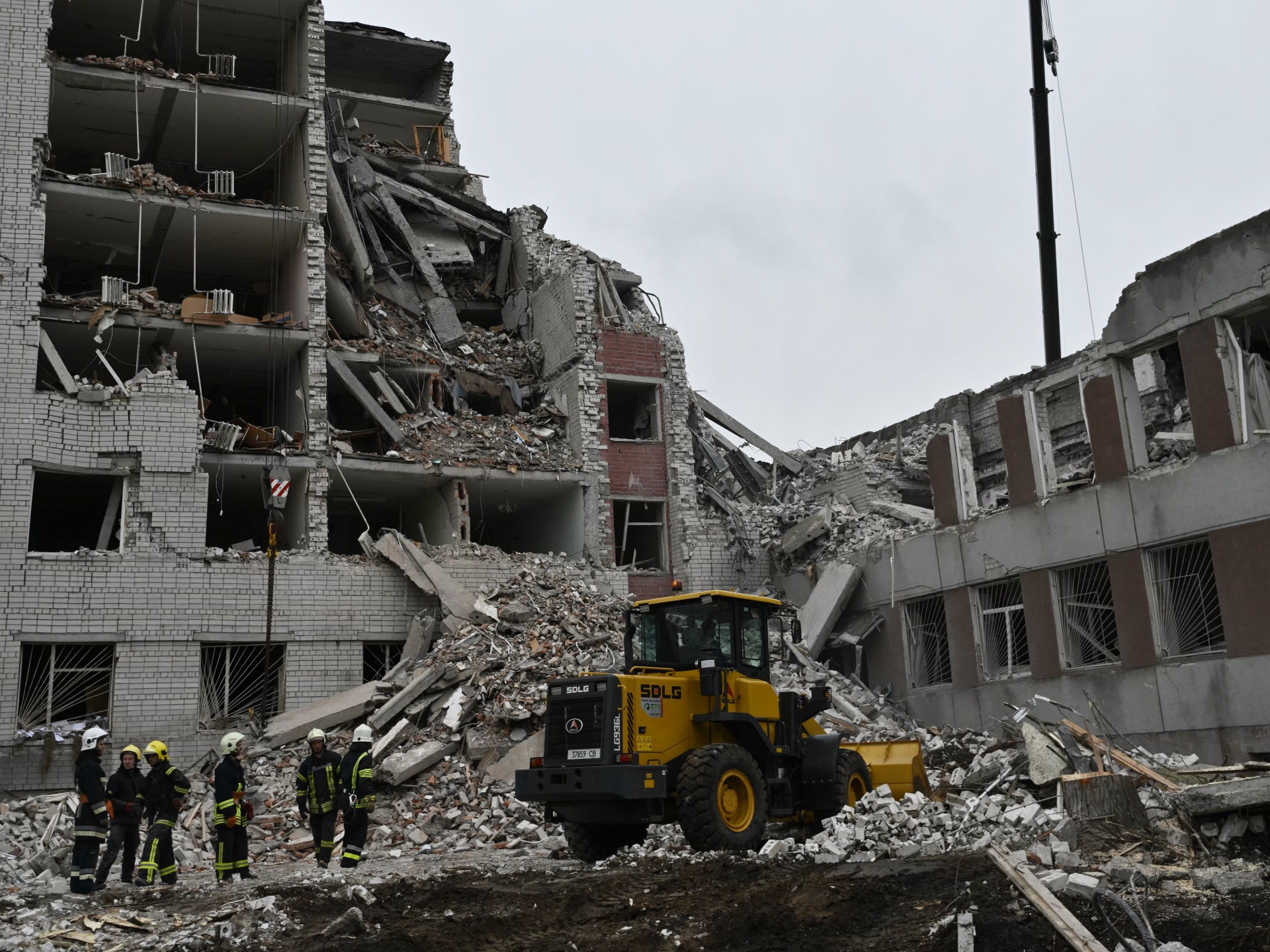As the war enters its 784th day, these are the main developments.
Here is the situation on Thursday, April 18, 2024.
Fighting
- At least 17 people were killed in the Ukrainian city of Chernihiv after it was struck by three Russian missiles. Emergency services said 60 people, including three children, were injured. About 250,000 people live in Chernihiv, which is about 150km (90 miles) north of the capital, Kyiv.
- One woman was injured by falling debris after Russian forces brought down a done over the Voronezh region. Governor Vyacheslav Gladkov said air defence also destroyed 14 airborne targets over the southern Belgorod region. No injuries were reported.
- The BBC reported the number of Russian soldiers killed in the war in Ukraine had topped 50,000. The data was compiled by BBC Russian, independent media group Mediazona and volunteers.
- Colonel Serhii Pakhomov, acting head of the Ukrainian military’s atomic, biological and chemical defence forces, told the Reuters news agency that Kyiv had recorded about 900 uses of riot control agents on the front line by Russia in the past six months. The gases, banned for use on the battlefield by the international Chemical Weapons Convention, are being used to try and clear trenches, Pakhomov said. Some 500 troops had required medical help after exposure to toxic substances on the battlefield and at least one soldier died after suffocating on tear gas, he added.
-
Ukrainian President Volodymyr Zelenskyy said the Ukrainian military attacked a large Russian airfield at Dzhankoi in the north of occupied Crimea. A series of explosions were reported at the base. There were no reports of damage.
Politics and diplomacy
- US House Speaker Mike Johnson said the House would hold a long-delayed vote on a $60bn aid package for Ukraine on Saturday. The bill, passed by the Senate in February, has been held up amid objections from far-right members of Johnson’s Republican party.
- Writing in the Wall Street Journal, US President Joe Biden urged Congress to approve the package saying the conflict was at a “pivotal moment”.
- China said that “a lot of work” would need to be done before a planned peace conference on the Ukraine war could take place in Switzerland. It did not say whether it would attend the meeting, which is expected to take place in June.
- Russia’s FSB security service arrested four people, accusing them of sending money to Ukrainian armed forces and planning to join the country’s military.
- France appointed investigating magistrates to run a war crimes investigation into the death of Fox News cameraman Pierre Zakrzewski, a dual French-Irish national, who was killed covering the war in Ukraine in March 2022. Producer Oleksandra Kuvshynova was also killed when the news team’s vehicle came under fire in Horenka near Kyiv. Correspondent Benjamin Hall was badly injured.
- Cybersecurity firm Mandiant warned a cyber group known as Sandworm, with links to Russian military intelligence, is emerging as a significant global threat after playing an increasingly critical role in the ongoing conflict in Ukraine. Sandworm “is actively engaged in the full spectrum of espionage, attack, and influence operations”, Mandiant said.
Weapons
- President Zelenskyy, addressing the European Council by videolink hours after the Chernihiv attack, pleaded for more defence systems. Zelenskyy said Ukraine should enjoy the same cover from aerial attacks as Israel, which was able to intercept a barrage of drones and missiles fired by Iran last weekend. “Our Ukrainian sky, the sky of our neighbours deserves the same level of defence,” he said. “All lives are equally valuable.”
- German Chancellor Olaf Scholz and other senior German officials pressed fellow European Union members to take action as soon as possible to boost Ukraine’s air defences. On Saturday, Germany announced it was sending an additional Patriot air defence system to Ukraine.
- NATO chief Jens Stoltenberg said the NATO-Ukraine Council will meet on Friday to discuss ways on how to provide more air defence systems for Kyiv.
- A crowdfunding initiative launched by a Slovak group on Monday has so far raised 750,000 euros ($798,000) from members of the public. The group, Peace for Ukraine, hopes to raise one million euros ($1.07 million) for the Czech Republic’s initiative to buy ammunition for Ukraine. Slovakia’s government has refused to send military aid to Kyiv.
Check out our Latest News and Follow us at Facebook
Original Source

